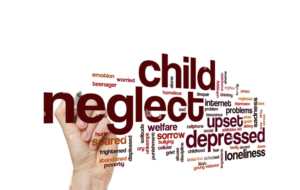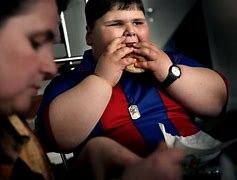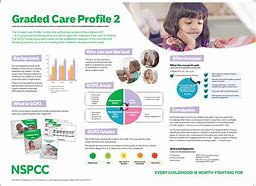Neglect

Walsall Safeguarding Partnership (WSP) has identified Neglect as one of its key priorities and therefore a Neglect Strategy was implemented to drive development and improvement around tackling Neglect in Walsall . The overarching aim of the strategy is for practitioners to be able to identify Neglect at the earliest possible opportunity. The Neglect Strategy is currently being refreshed and once updated it will be added to this page.
Take a look here for WSP’s Neglect Strategy 2021-2024 and our updated Neglect Needs Analysis which supports our refreshed strategy.
To heighten partners awareness in respect of neglect the See, Hear and Respond to Child Neglect Conference took place in May 2023 – ‘Be part of making a difference’.
The conference provided an opportunity for practitioners, managers, and leaders across the partnership to respond collectively to what children have told us are the three key principles that will help effectively support children who experience neglect at the earliest moment possible:
- Training – The conference provided an overview of neglect nationally and in Walsall, helped practitioners to understands the impact neglect has on children and the role we all can play in preventing neglect and supporting children who experience neglect.
- Seeing and Hearing Children – Through learning from national and local serious case reviews and multi-agency audits we have been able to listen to children’s lived experience and reflect on what could have been done differently to improve outcomes.
- Taking Action – Through a number of workshops, good practice and tools were shared to help practitioners early identification of neglect and supporting children.
Introduction:
Guest Speaker – Bridget Griffin – ‘The Ripples of Neglect’ & learning from Child Safeguarding Practice Reviews:
Learning from Multi Agency Audits:
Workshop 1 – West Midlands Police AWARE APP:
Workshop 2 – Neglect & partnership working:
Workshop 3 – Group Supervision:
Closing:
Definition of Neglect
In order to be able to recognise and address Neglect it is important there is a clear and shared understanding of what Neglect is.
Working Together to Safeguard Children 2023 defines Neglect as:
The persistent failure to meet a child’s basic physical and/or psychological needs, likely to result in the serious impairment of the child’s health or development. Neglect may occur during pregnancy as a result of maternal substance abuse. Once a child is born, neglect may involve a parent or carer failing to:
• provide adequate food, clothing and shelter (including exclusion from home or abandonment)
• protect a child from physical and emotional harm or danger
• ensure adequate supervision (including the use of inadequate care-givers)
• ensure access to appropriate medical care or treatment
• It may also include neglect of, or unresponsiveness to, a child’s basic emotional needs.
Whilst this definition refers to ‘persistent failure to meet needs’, neglect can be episodic or cumulative. It can also be intentional or unintentional.
Types of Neglect
Horwath (2007) identified 6 areas of Neglect:
What does Physical Neglect look like – signs/indicators:
• Child feeling hungry, not having access to enough food.
• Child is not dressed in suitable clothing for the weather.
• Childs clothes are dirty.
• Childs body, hair, skins and/or nails are dirty.
• Childs home is dirty.
• Child home is cluttered, which could cause a safety issue.
• Adult self neglect and/or hoarding which could impact on the child.

What does Nutritional Neglect look like – signs/indicators:
• Child does not have access to regular nutritional meals.
• Child is overweight or obese.
• Child is very thin.
• Child is pale.
• Child does not have access to
• Parents/carers ignore or refuse advice and support from practitioners.

What does Emotional Neglect look like – signs/indicators:
• Child does not receive love, nurture or stimulation, which they need to form secure and positive attachments.
• Child is ignored, humiliated, intimidated or isolated.
• Childs finds it hard to interact with others.
• Child has poor relationships with peers, parents/carers and/or practitioners.
• Child feels anxious and/or depressed
• Child has low mood.
• Child has low self esteem.
• Child self harms and/or has suicidal thoughts.
• Parental mental health, drug and/or alcohol misuse and domestic abuse can have an impact on a child’s emotional health and well being.
• Parental Conflict can have on a child’s emotional health and well being:
What does Education Neglect look like – signs/indicators:
• Child not being able to access education, being persistently or severely absent: Attendance Poster
• Child being persistently late.
• Child not being supported to complete homework.
• Parents not attending meetings at school.
• Parents not attending parents evening.
• Parents not showing an interest in their child’s learning.

What does Medical Neglect look like – signs/indicators:
• Child is not registered with a GP and/or dentist.
• Child has regular attendance at A&E.
• Child has nappy rash.
• Child has flea bites.
• Child has reoccurring headlice.
• Child has no toothbrush.
• Child has no toothpaste.
• Child has decaying teeth, a number of teeth removed and/or fillings.
• Parents/carers ignore or refuse health recommendations.
• Parents/carers fail to seek medical attention when needed.

What does a lack of supervision and guidance look like in terms of neglect – signs/indicators:
• Child has unexplained injuries. For young people, this could be linked to exploitation.
• Child is left with inappropriate caregivers.
• Child is exposed to risky adults.
• Child is involved in anti social behaviour.
• Child becomes known to the police.
• Child is vulnerable to exploitation [criminal and/or sexual].
• Child is misusing drugs and/or alcohol.
• Parents/carers do not give the child appropriate rules and boundaries.
• Parents/carers do not ensure the child is safe online, and/or they ignore or refuse advice and support from practitioners.

Graded Care Profile 2 (GCP2):
Graded Care Profile 2 is an evidenced based tool that support practitioners to measure the quality of care a child is receiving, highlighting the strengths and identifying areas where there are concerns around Neglect. GCP2 uses a scale of 1 to 5 to score different aspects of family life. 1 indicates that all the child’s needs are met, progressing up to 5 when the child’s needs are never met. GCP2 assesses 4 key areas of Neglect:
1. Physical Care
2. Safety
3. Emotional Care
4. Developmental Care
GCP2 can help to communicate to children and families concerns around neglect and how practitioners can work together to support the family to make the necessary changes to improve the lived experience for the child. GCP2 can help inform assessments, plans and interventions, monitor progress and support decision making about the child’s welfare.
That’s why the partners in Walsall decided that they wanted to use the GCP2 tool to assess neglect, looking at the impact it has on children, and putting targeted support in place to improve the outcomes for the children of Walsall.
You can now book onto GCP2 Training: Event List : Neglect (event-booking.org.uk.
However, you MUST first have completed Level 1 – Neglect Awareness e-learning course and Leve l2 – Understanding Neglect 1 day face to face training.
- GCP2 can be used where neglect is suspected.
- GCP2 offers a consistent approach to assessing neglect.
- GCP2 can be used for children of any age.
- GCP2 assist practitioners in undertaking a comprehensive and evidence-based assessment of families when neglect is known or suspected.
- GCP2 can only be used by trained professionals.
Watch an informative video from NSPCC around GCP2 below:
Neglect Training
Level 1 – Neglect Awareness – online e-learning course: eLearning Courses (event-booking.org.uk)
Level 2 – Understanding Neglect – 1 Day – face to face training: Event List : Neglect (event-booking.org.uk)
Level 3 – GCP2 Assessment Tool – 1 Day – face to face training: Event List : Neglect (event-booking.org.uk)
Please refer to the Training section on the WSP website for full details and to book onto the Neglect training courses.

